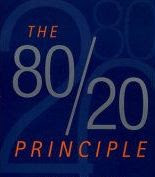Identifying and Understanding Domestic Violence
Note: This tip covers some of the basics of how domestic violence is dealt with in mediation. The Community Mediation Center has an entire class devoted to Domestic Violence and Mediation. It is required for anyone who wants to become a family mediator, but anyone interested in the topic is encouraged to take it for a more detailed explanation of how domestic violence works in mediation.
 Domestic violence can be difficult to spot because of the strong tendency to keep it secret or rationalize the behavior as normal. As a result, the mediator must be attentive for signs of it during the mediation so that the parties – and if necessary other parties like counselors or the courts – can be made aware of it. According to Anita Vestal in her article “Domestic Violence and Mediation: Concerns and Recommendations,” domestic violence is usually divided into three types: physical abuse, sexual abuse, and psychological abuse. While the first two are generally easy to define, and thus recognize when it is brought up in a mediation, the third is harder. Examples of psychological abuse include:
Domestic violence can be difficult to spot because of the strong tendency to keep it secret or rationalize the behavior as normal. As a result, the mediator must be attentive for signs of it during the mediation so that the parties – and if necessary other parties like counselors or the courts – can be made aware of it. According to Anita Vestal in her article “Domestic Violence and Mediation: Concerns and Recommendations,” domestic violence is usually divided into three types: physical abuse, sexual abuse, and psychological abuse. While the first two are generally easy to define, and thus recognize when it is brought up in a mediation, the third is harder. Examples of psychological abuse include:- Threats and Intimidation: these include threats to take the children away, destroy someone financially, attempts to coerce someone into illegal activity, displaying or threatening with weapons, etc.
- Using Economic Resources: such forms of abuse include unilaterally maintaining exclusive access to cash, credit cards, bank accounts, accruing debt in the partner’s name, and withholding child support payments.
- Stalking: such forms of abuse include repeatedly sending letters, appearing at someone’s work or home, and incessant phone calls that carry the message of intimidation.
Not every case of domestic violence can be handled by mediation, and several tests have developed to determine whether a case involving domestic violence can be mediated. These include phone interviews, preliminary screening, and questionnaires such as the Tolman Screening Model (developed by Richard Tolman) or Conflict Assessment Protocol (developed by Linda Girdner). However, one way to help a case proceed with mediation is to have the parties agree to a couple ground rules. Anita Vestal recommends the following ground rules that both parties need to agree to:
- Acknowledgment of past abuse
- Encouragement of the abused partner to pursue an order for protection
- Requiring and monitoring attendance at anger management classes or therapy for the abuser
- Requiring and monitoring the participation of the abused partner in services for battered women or therapy for the abused partner
Anita Vestal admits that a couple of factors may make a domestic violence case unsuitable for mediation. She identifies these factors as:
- Abusers who seem to have a need to control the abused partner
- An abuser who is easily frustrated by the idea of not getting all that he wants
- An abuser who accepts no responsibility for the abuse
- An abused partner who discloses that she has been abused, but does not want it revealed to the abuser
- Patterns of psychological abuse (with or without physical abuse) that has led to a situation where the abused partner identifies with the abuser's needs as primary and necessary for her survival
Ultimately the issue of domestic violence is a tricky issue with no easy answers. In order to deal with domestic abuse a mediator must have significant training and an ability to control power dynamics. A lot will come down to the mediator’s intuition and what he or she feels they can handle.





